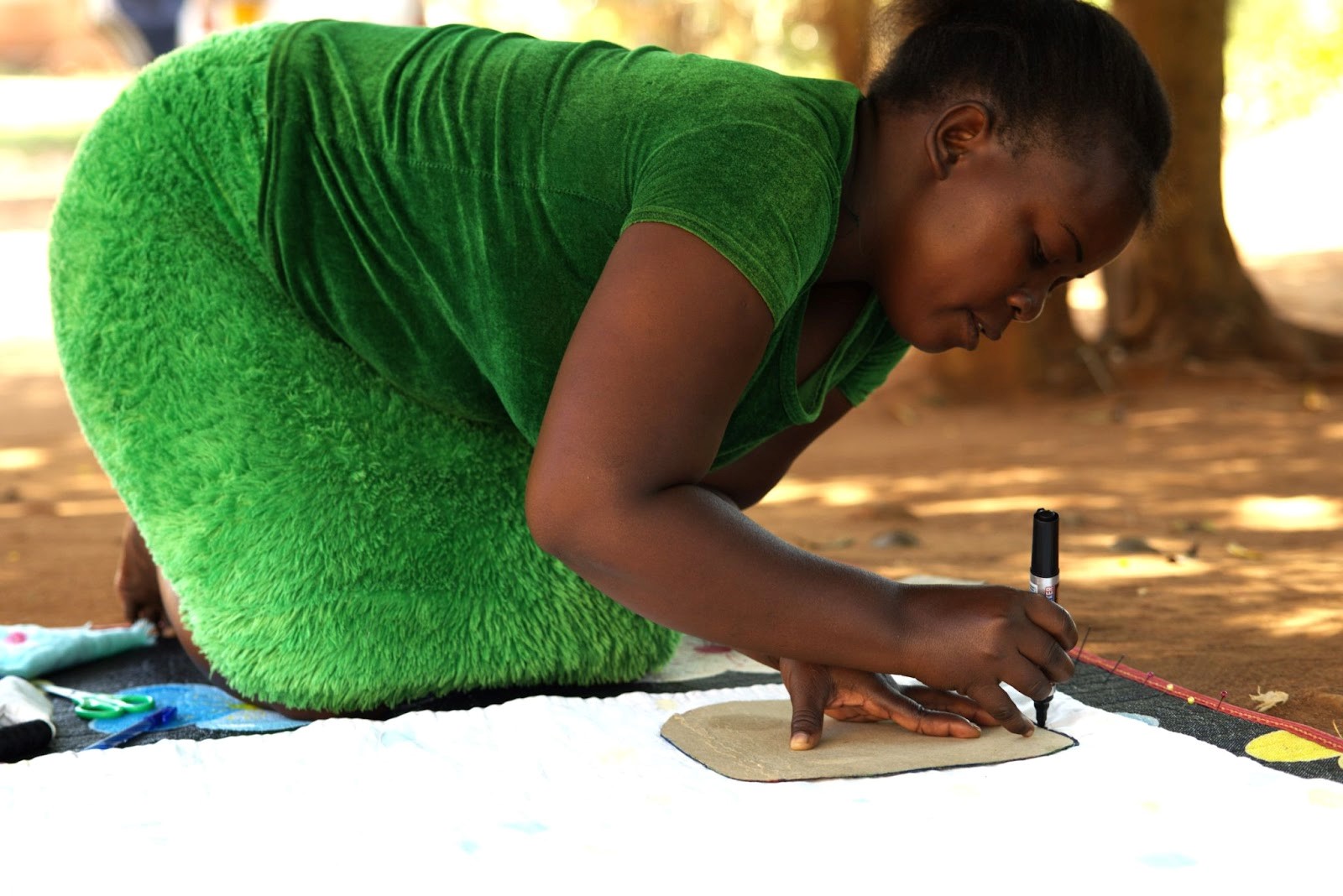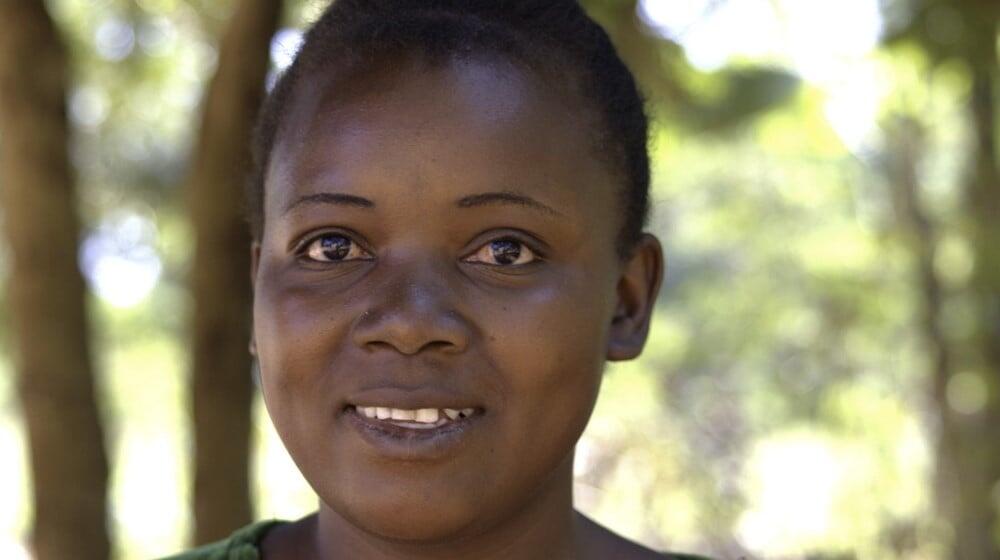Annet painstakingly cuts through the spotlessly clean piece of cloth. She has received an order for a set of reusable pads. With meticulous care, she transforms old clothes into clean, reusable pads, ensuring not only hygienic solutions but also economic independence for herself and her peers
At 23 years, Annet Mirembe is a mother’s dream come true in the small village of Kisaikye, Kamuli district. She runs a small sanitary pad business and is rearing a pig that she hopes will reproduce to get her a modest piggery business.
Annet’s mother watches with evident pride as her daughter makes the pads on the flowery mat. Her admiration and pride in her daughter is palpable. For many mothers in this small village having a daughter that is financially self-sufficient is no mean fit.
In 2023, Annet joined one of the Village Saving and Loans Association groups (VSLA) run by UNFPA in partnership with Care International International under the EYE (Empowering Young girls and women to decide over their own bodies and Ensure universal access to comprehensive adolescent and youth friendly SRHR information and services) programme. EYE is a 3-year project generously funded by the government and people of Norway and is aimed at increasing the utilization of integrated sexual and reproductive health (SRH) services and rights by adolescents and youth aged 10-24.
“They taught us how to make sanitary pads. We are 20 girls in the group,” Annet says smilingly. In the project the young women and girls save monthly and have access to loans. Annet tells us that she has since borrowed about 80 dollars which she has used to buy a pig. She hopes to own a piggery, a business she says is very lucrative in this village. Coupled with the small money she makes out of the sanitary pad business, Annet is quite economically accomplished.
Like many girls in this village and district, Annet was not always this self-reliant or financially stable. In Kamuli, where the stigma surrounding menstruation often robs young girls of their dignity and education, access to menstrual hygiene products is a luxury many cannot afford. School days are missed, dreams deferred—all because of a lack of basic hygiene products.
The eastern part of Uganda where Kamuli is found experiences the highest rates of teenage pregnancies in Uganda. Failure to have access to menstrual hygiene products not only means that the girls are denied dignity but increases the risk of dropping out of school, which leads to teenage pregnancy and subsequent gender-based violence (GBV). It is a vicious cycle.
Through the VSLA groups and the skills she got, Annet has found her calling. Amongst peers, predominantly young women and girls aged 15 to 24, she has embraced a journey of empowerment, one that is transforming her life and those around her. Making reusable sanitary pads is a seemingly simple yet profoundly impactful endeavor, each stitch a symbol of empowerment, love and dignity for herself and her peers.

To date, over 5,000 young people have been trained in menstrual hygiene management and pad-making, and through adoption and practice of their skills just like Annet, so far the project has reached 10,055 people (6,925 girls and 3,131 boys).
As the world observes Menstrual Health Day today, Annet's story serves as a reminder of the power of resilience and the impact that string partnerships can create for the most vulnerable, young women and adolescents like Annet. It highlights the importance of initiatives like Norway's support for the SRHR, which empower young girls like Annet to take charge of their bodies and their futures.
In the bustling streets of Kamuli, amidst the fields that stretch to the horizon, Nambi's journey continues—a journey fueled by hope, determination and the unwavering belief in a better tomorrow. And as she looks towards the horizon, she knows that her story is not just hers alone—it's a story of empowerment, resilience and change for generations to come.
- Story by Prisca Uwera Kalenzi


